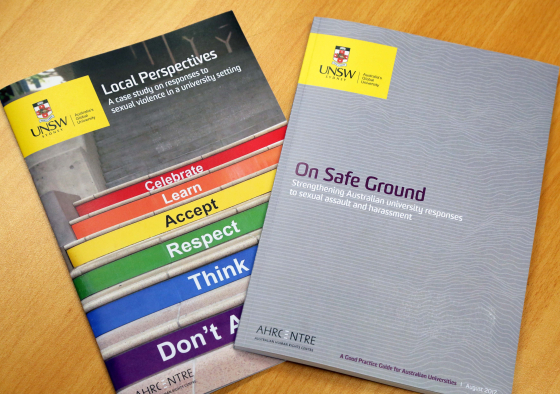The problem
National and global statistics indicate a crisis in sexual assault and harassment across the broader community, but it is only in recent years that data regarding the extent of campus-based sexual violence in Australia has emerged.
The individual impact of sexual assault and sexual harassment is well documented, with long-term physical and mental health consequences. Campus-based sexual violence can also be highly disruptive to students’ educational experiences, impacting their academic performance and completion rates. Too often, these impacts have been compounded by institutional betrayal, with universities insensitively responding to disclosures, failing to undertake robust investigations, or academically punishing a survivor for reporting.
Decades of advocacy efforts by student survivors, women’s groups and sexual assault services to drive more effective institutional responses had been largely ignored, stymied by the lack of sector-specific national data and the ad-hoc management of incidents.
The solution
To start a national conversation on campus sexual violence, the Institute (then the Australian Human Rights Centre) worked closely with The Hunting Ground Australia Project (THGAP) in developing a multi-year impact campaign that ran from 2015-2018. The campaign facilitated campus screenings of the critically acclaimed documentary The Hunting Ground and helped to grow national media attention to highlight the absence of effective systemic responses in universities and residential colleges.
Identifying the lack of data as a major hurdle, the Centre collaborated with the Australian Human Rights Commission to ascertain the prevalence of sexual assault and sexual harassment at Australian universities. The Commission’s landmark Change the Course report in August 2017 compiled the survey responses of 30,930 students from 39 universities, providing the first national independent data.
Drawing on the survey data and international comparative research, the Centre released On Safe Ground: A Good Practice Guide for Australian Universities in August 2017. Strongly grounded in student experience and the Change the Course survey results, On Safe Ground included 18 recommendations around institutional responses, reporting protocols, student support services and prevention strategies.
In February 2024, the Institute released a new student-focused resource, How Australian Universities are Responding to Campus Sexual Violence, collating institution-specific information drawn from university websites. The Institute continues to undertake research and advocacy around campus sexual violence, including an investigation into the unique challenges faced by graduate researchers.
Our impact
The On Safe Ground report has informed student advocacy campaigns and contributed to policy proposals recently adopted by Australian governments, while the How Australian Universities are Responding to Campus Sexual Violence report has been welcomed by student leaders and parliamentarians.
In July 2023, the University Accord Panel’s Interim Report acknowledged that “more obviously needs to be done” around sexual violence on university campuses and identified university governance improvements to address staff and student safety as one of its five priority actions.
In November 2023 the Commonwealth Department of Education released a draft action plan addressing gender-based violence in higher education for consultation and further policy development. On 23 February 2024 Education Ministers agreed to the Action Plan Addressing Gender-based Violence in Higher Education.
Centred on the voices and needs of student survivors, the action plan proposes a package of seven key actions, including:
- a new National Student Ombudsman to provide students with access to an effective, trauma-informed complaints mechanism;
- a new National Higher Education Code to Prevent and Respond to Gender-Based Violence, detailing expectations around critical incident management and provision of support to students – to be implemented by a new expert unit in the Department of Education;
- whole-of-institution data collection and transparent reporting, including annual reporting by higher education providers through the Commonwealth Minister of Education to Parliament; and
- a commitment to enhance the oversight, standards and accountability of student accommodation providers regarding their gender-based violence prevention and response
Institute Research Fellow Dr Allison Henry was part of the Department of Education's Gender-based Violence Stakeholder Reference Group, which informed the development of the action plan. The Institute has welcomed the reforms as a potential game-changer for Australia’s university sector, dramatically increasing the support for student survivors and enhancing institutional accountability and transparency.
In September 2024, the Universities Accord (National Student Ombudsman) Bill 2024, providing for the establishment of a new National Student Ombudsman, was introduced. Dr Henry has analysed the key features of the new Bill, which marks the first legislative step in implementing the action plan.
